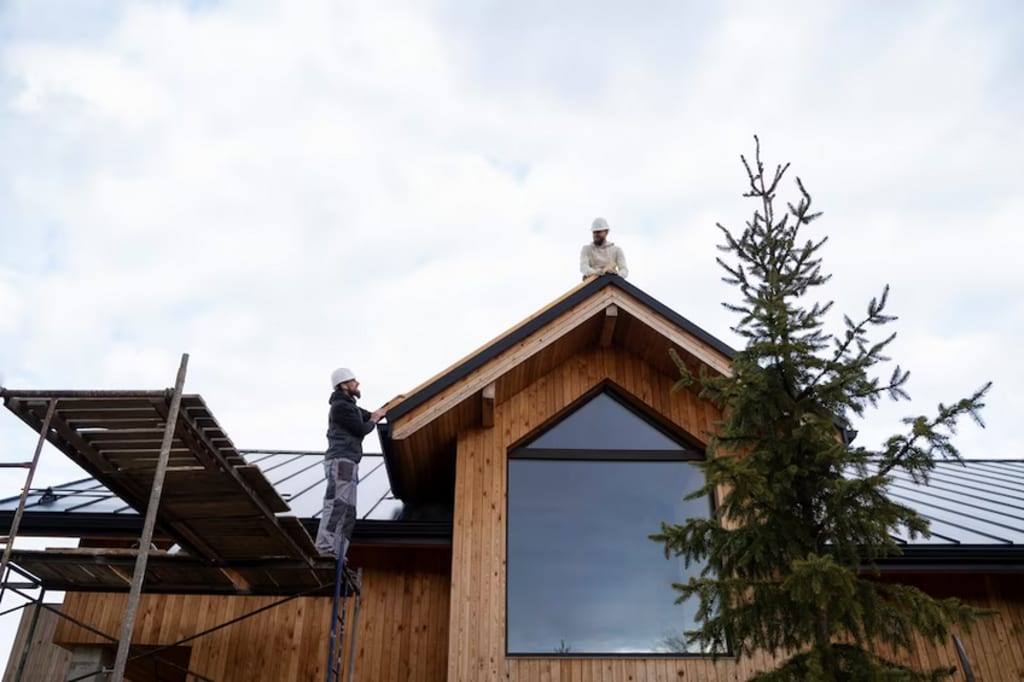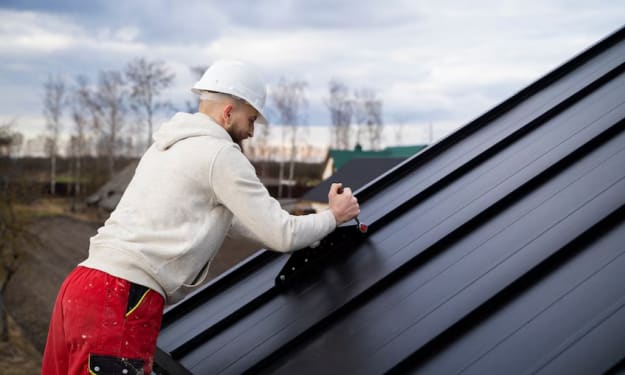Key Considerations for Commercial Roofing Installation in Phoenix
Commercial Roofing Installation

Introduction
Commercial roofing installation is a significant investment for businesses in Phoenix, Arizona. A well-designed and properly installed roof is essential for protecting the property, ensuring the comfort of employees and customers, and maintaining the overall integrity of the building. However, commercial roofing installation is a complex process that requires careful consideration of various factors. In this article, we will discuss key considerations for commercial roofing installation in Phoenix, including roof type, materials, insulation, maintenance, and warranties. Understanding these factors will help businesses make informed decisions and ensure a successful roofing installation that meets their specific needs.
Roof Type
The first consideration for commercial roofing installation is determining the most suitable roof type for your building. There are several options available, including flat roofs, low-slope roofs, and pitched roofs. Each type has its advantages and considerations, such as cost, durability, and aesthetic appeal. Factors like the building's architectural design, intended use, and local building codes will influence the choice of roof type.
READ MORE - What are the Benefits of Foam Roofing in Phoenix: A Complete Guide
Roofing Materials
Selecting the right roofing materials is crucial for the longevity and performance of the commercial roof. In Phoenix, where intense heat and UV radiation are common, it is important to choose materials that can withstand these conditions. Options include asphalt shingles, metal roofing, built-up roofing (BUR), modified bitumen, and single-ply membranes like TPO or PVC. Consider factors such as durability, energy efficiency, maintenance requirements, and budget when choosing the roofing materials.
Insulation
Proper insulation is essential for commercial roofs to enhance energy efficiency, reduce heating and cooling costs, and maintain a comfortable interior environment. In Phoenix, where the temperature can reach extreme highs, insulation plays a crucial role in minimizing heat transfer and improving the building's energy efficiency. Consult with a professional roofing contractor to determine the appropriate insulation type and R-value based on your building's needs and local climate conditions.
Maintenance and Repair
Commercial roofs require regular maintenance to ensure their longevity and prevent costly repairs. When planning for a roofing installation, consider the maintenance requirements of the chosen roofing system. Some materials may require more frequent inspections and maintenance than others. It is important to establish a maintenance plan and work with a reputable roofing contractor who can provide ongoing maintenance services to keep the roof in optimal condition.
Warranties and Guarantees
Roofing warranties provide valuable protection for commercial property owners. When selecting a roofing system and contractor, consider the warranties offered. Manufacturer warranties cover the materials, while contractor warranties cover the installation workmanship. Ensure that the warranties are comprehensive, clearly outline the coverage period, and specify the responsibilities of both parties. Having strong warranties in place will provide peace of mind and protect your investment.
FAQs
Q: How long does commercial roofing installation typically take?
A: The duration of commercial roofing installation depends on various factors, such as the size and complexity of the project, weather conditions, and the chosen roofing system. It can take anywhere from a few days to several weeks. A professional roofing contractor can provide a more accurate timeline based on the specific project requirements.
Q: What is the expected lifespan of a commercial roof?
A: The lifespan of a commercial roof varies depending on the materials used and the quality of installation. Generally, flat roofs have an average lifespan of 10 to 25 years, while pitched roofs can last 20 to 50 years or more with proper maintenance. Regular inspections and maintenance are key to extending the lifespan of a commercial roof.
Q: Is it necessary to hire a professional roofing contractor for commercial roofing installation?
A: Yes, it is highly recommended to hire a professional roofing contractor with experience in commercial roofing installation. Commercial roofing projects are complex and require specialized knowledge and equipment. Professional contractors ensure that the installation is done correctly, adhering to local building codes and industry best practices.
Conclusion
Commercial roofing installation in Phoenix is a significant investment that requires careful consideration of various factors. From choosing the right roof type and materials to ensuring proper insulation, maintenance, and warranties, each aspect plays a crucial role in the success and longevity of the commercial roof. Consulting with a professional roofing contractor is essential to assess your specific needs, provide expert guidance, and ensure a seamless installation process. By prioritizing key considerations and working with experienced professionals, businesses can enjoy a durable, energy-efficient, and reliable roofing system that protects their commercial property for years to come.





Comments
There are no comments for this story
Be the first to respond and start the conversation.